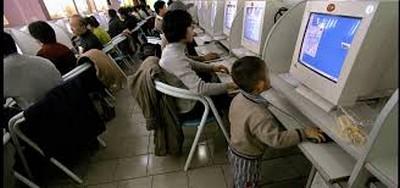
In the computer age, China gives the world another option
Ding Gang
Those born in the 1950s are the first ferrymen of the computer civilization. We’ve witnessed the digital revolution unfold, upgrading our skills and capabilities alongside each new version of Windows.
Through this journey, we’ve developed a profound understanding of what an “operating system” truly means to modern life.
Without Windows, countless software applications would have remained inaccessible. One software application after another constantly expands the world of the Windows system.
From Windows 3.1 to Windows 11, along with the rise of MacOS, each iteration carried humanity’s evolving vision of the digital realm. These systems enhanced our professional capabilities and educational opportunities – and, admittedly, deepened our passion for computer games.
When the US added Huawei’s 5G technology, and later the Ascend AI chip, to its list of globally banned entities, the dominoes of our digital world began to tremble.
Suddenly, a troubling question emerged: What if the US operating systems were no longer available? What alternatives would we have?
Yet, the resilience of our digital ecosystem became evident as we navigated these challenges, instilling a sense of reassurance in us all.

Today, we no longer need to worry, thanks to HarmonyOS, and Kylin, operating systems with independent intellectual property rights developed by China.
HarmonyOS, developed by Huawei through the collective genius of hundreds of scientists across dozens of research institutions, represents a fundamental paradigm shift in the Internet of Things.
The birth of the system wasn’t merely an emergency replacement strategy but a digital tectonic movement long in the making – one accelerated by the US’ comprehensive technological containment of China.
The emergence of China’s own developed systems signals a profound transformation in the computing age, offering everyone an alternative “system” choice worldwide.
This new system is specially designed for Chinese manufacturing. Various devices, instruments, electrical appliances, automobiles, aircraft, and more manufactured in China could all be connected through this system, and equipped with artificial intelligence.
To understand this, watch the autonomous mining trucks at Inner Mongolia’s open-pit coal mines navigate precisely under HarmonyOS guidance.
HarmonyOS is not just for China; it’s a global innovation that everyone can participate in, making you a part of this transformative journey. This is just the beginning.
China’s own developed systems still have a long way to go, but they solve a fundamental global problem: In a diverse world, how do we connect all our devices into a network so that they can serve our needs more intelligently?
Human civilization ascends in a spiral through precisely these paradigm shifts. A world connected through diverse systems will only strengthen global bonds, while competition between different systems accelerates better development for all.
The emergence of China’s own developed systems challenges US ones but also motivates US operating systems to keep upgrading and opening up. Of course, it is also a warning to those who want to use hegemonic tactics to gain a technological monopoly.
Standing at the threshold of a new era, my generation has witnessed the remarkable evolution from DOS monochrome command-line interface to the expansive internet, and now to HarmonyOS fully interconnected ecosystem – a technological journey that represents humanity’s persistent effort to overcome digital monopolies.
The greatness of our age lies precisely in this realization: The future should not be illuminated by a single, isolated lighthouse but by the interstellar light of a galaxy where countless stars shine together, offering us the ever-increasing power of “another choice.”
The writer is a senior editor with the People’s Daily and currently a senior fellow with the Chongyang Institute for Financial Studies at the Renmin University of China
